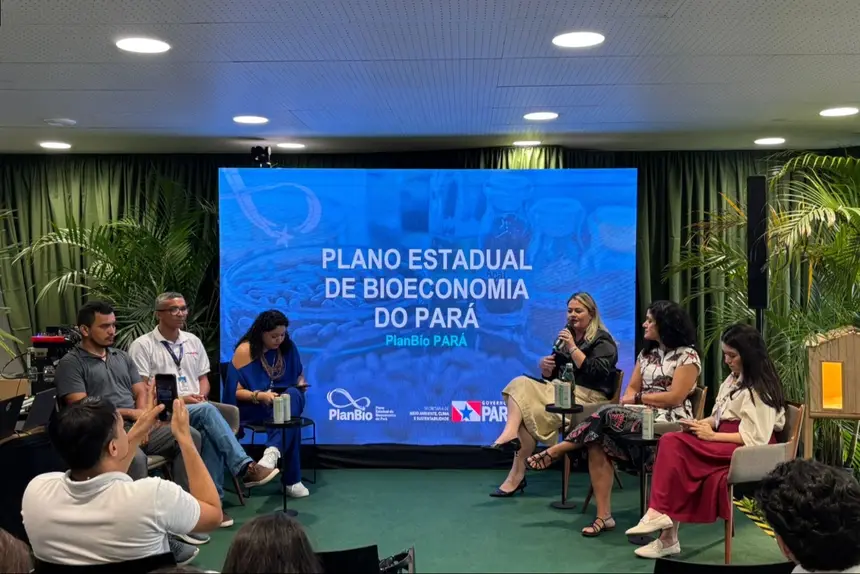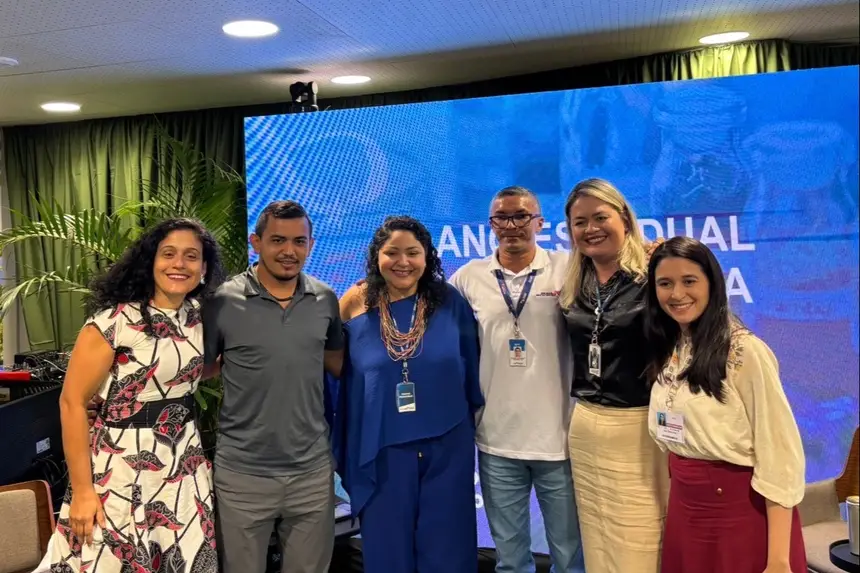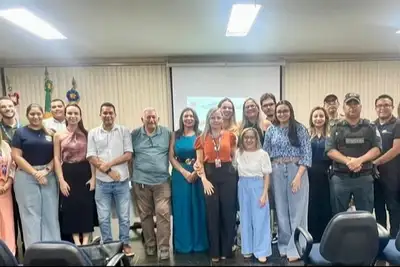Pará strengthens public policies and connection with traditional peoples in panel on bioeconomy at COP 30

On last Friday (14), the State Secretariat for Environment, Climate and Sustainability (Semas) participated in the panel "Paths to Territorial Bioeconomy Public Policies: Concrete Experiences," as part of the programming of Pavilion Pará, in the Green Zone of COP30.
The panel presented the consolidation of a series of initiatives aimed at strengthening the bioeconomy and valuing the knowledge of traditional peoples and communities in Pará. The presentation detailed some advances of the Inova SocioBio project, the role of Casa SocioBio, and the creation of the School of Forest Knowledge.
Representing Semas, the coordinator of Bionegocios, Jéssica Brilhante, highlighted that the InovaSociobio project has shown success in disseminating the acquired knowledge. "Inova SocioBio aims to strengthen sustainable community businesses of indigenous peoples, quilombolas, and family farmers, focusing on the production and commercialization of sociobiodiversity products."

Casa SocioBio was presented as a fundamental element of connection. "Casa Sociobio plays the role of effectively bringing public policies to the communities, but also of conveying the needs and demands of these territories to the Bioeconomy Park," the coordinator emphasized.
During the panel, the Training Trail for Public Servants was also presented, an initiative aimed at internalizing knowledge of bioeconomy within Pará, focusing on effective public servants to deepen their understanding of what is being built. "The ultimate goal is for this knowledge to be replicated to the traditional peoples and communities in the territory, ensuring an effective and lasting impact on the government," she explained.
The School of Forest Knowledge, which is currently in the conceptual construction phase, was also mentioned in the panel. "The project will be a space for exchanging scientific knowledge and traditional wisdom. The location will be a center to map and create connections between forest peoples and academia, inspiring new innovations and deepening traditional knowledge," she concluded.
In addition to the Semas representative, the panel included the Coordinator of Sociobioeconomy, Protection of Territories, Knowledge and Traditional Communities (SEAF), Josimar Vasconcelos, Antônio Moraes, CNS Leadership, participant of Inovasociobio and Director of the Puxirum Fund of Extractivists of the Brazilian Amazon, Suze Oliveira, Director of Innovation and Sustainability (Cesupa), and Andreia Mello, Biodiversity Specialist, Funbio.
Text: Vitor Hugo Ribeiro/ Ascom Semas









